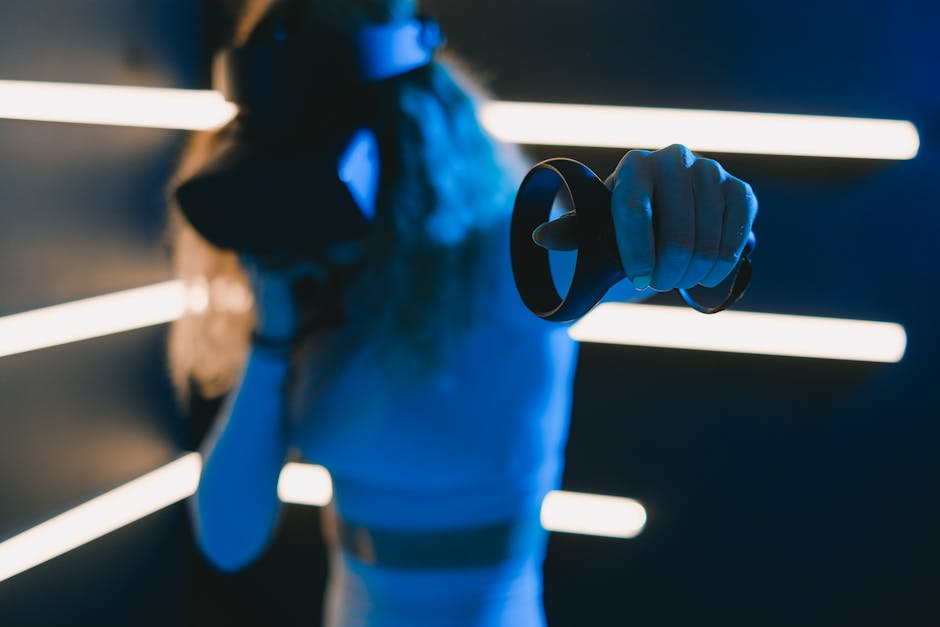The landscape of music and entertainment is in constant flux, driven by technological advancements, evolving cultural preferences, and a persistent desire for connection. Predicting the precise trajectory of these shifts is an exercise in educated guesswork, but examining emerging patterns reveals compelling possibilities. This exploration delves into potential future trends, examining their implications and the opportunities they present.
A cornerstone of the future entertainment ecosystem is undoubtedly the increasing integration of artificial intelligence. AI is already influencing music creation, from composing original pieces to enhancing existing soundscapes. We can anticipate even more sophisticated applications. Imagine personalized playlists curated not just by listening history, but by AI algorithms analyzing emotional states and cognitive processes, tailoring music to specific moments and needs. A future soundtrack designed not just for enjoyment, but for emotional regulation, is conceivable. Furthermore, AI could play a crucial role in artist discovery and management, identifying undiscovered talent and providing tailored marketing strategies. This automation promises to level the playing field, potentially opening doors for independent artists and fostering a more democratic music scene.
The rise of immersive experiences is another significant trend. Virtual and augmented reality (VR/AR) technologies are increasingly penetrating the entertainment sector, offering audiences an unprecedented degree of engagement with music and performances. Concerts in virtual worlds, where viewers can interact with artists and experience intricate set designs, are no longer science fiction. Similarly, AR applications could overlay interactive musical elements onto real-world environments, transforming everyday spaces into vibrant musical landscapes. Concerts could incorporate augmented elements such as dynamically changing stage projections, interactive lighting displays, and real-time audience participation. This heightened interactivity elevates the concert experience beyond the traditional confines of a venue, creating unique and memorable interactions.
The democratization of creation tools and platforms plays a crucial part. Digital tools are empowering individuals to create and distribute music independently. This accessibility fuels creativity, fostering a more dynamic and diverse musical landscape. Expect a surge in the popularity of user-generated content, possibly shaping mainstream music tastes and generating unexpected collaborations. This movement fosters a more inclusive approach to musical production and consumption, potentially paving the way for previously unheard voices and artistic styles to gain prominence. Furthermore, accessible platforms provide unparalleled opportunities for independent artists to connect directly with their audience, bypass traditional gatekeepers, and build dedicated fan bases.
Furthermore, the convergence of technologies like blockchain and NFTs are beginning to reshape the way we consume and own music. The prospect of owning digital music in a tangible, verifiable way, combined with the possibility of artist royalties being distributed directly to creators through blockchain, presents intriguing possibilities for fostering stronger artist-fan relationships. This paradigm shift offers potential solutions to issues of digital piracy and the fair compensation of artists, redefining the contractual dynamics in the entertainment industry.
Alongside these technological trends, cultural shifts are also shaping the future. Global audiences are becoming increasingly interconnected, leading to a fusion of musical styles. Expect a vibrant interplay of musical genres, with elements of traditional music incorporating modern techniques. Cross-cultural collaborations will likely become the norm, fostering innovative and surprising soundscapes. A greater emphasis on emotional connection and inclusivity is also emerging. Music that reflects and responds to the complexities of human experience, whether addressing societal challenges or celebrating diversity, will gain popularity.
However, considerations regarding accessibility and affordability are paramount. The integration of immersive experiences and advanced technologies might create a digital divide, making access to these experiences unequal. Ensuring that these advancements benefit a broad audience, and are not confined to niche groups with access to high-end technology, becomes a crucial factor.
Furthermore, ethical considerations surrounding AI-generated music and ownership rights of digital creations will need attention. Questions about the origin of music created through advanced algorithms and the rights of the artists who have influenced these algorithms must be discussed. The future will demand robust legal frameworks to address these complexities and protect the rights and interests of artists, creators, and consumers in the digital age. As these technologies progress, intellectual property rights, particularly in the realm of AI-generated art, will require innovative legal frameworks and ethical considerations.
In conclusion, the future of music and entertainment is a dynamic interplay of technological advancements and evolving cultural tastes. Immersive experiences, the democratization of creation tools, and the integration of AI promise to revolutionize the way we consume and create music. However, it is crucial to address issues of inclusivity, accessibility, and ethical considerations as these technologies rapidly evolve. By acknowledging these challenges and harnessing the potential of these trends, we can navigate the shifting sands of entertainment to create a more inclusive, engaging, and enriching future for all.
